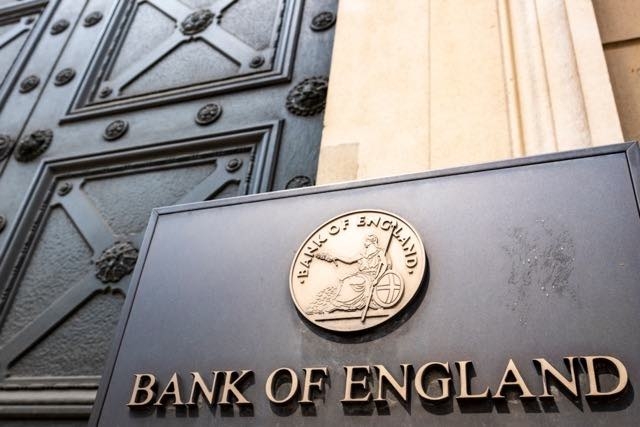The Bank of England today held its base rate at 5.25% for a second time amid signs inflation is coming close to being tamed, at least for now.
The majority of forecasters expected rates to be held at 5.25% but have not ruled our another rise before the end of the year.
The Bank's Monetary Policy Committee (MPC), which sets the rate, voted by a majority of 6 to 3 to hold the rate.
The MPC said there were good reasons to keep the rate on hold after 18 months of consistent rises. The MPC wants to avoid adding extra cost on to hard-pressed borrowers and indebted businesses and may have signalled that the recent cycle of rising interest rates is coming to an end.
CPI inflation is currently 6.7% with the next inflation announcement not due until 14 November.
There have recently been some signs of weakening UK economic activity but no signs yet of a significant recession on the horizon for 2024. Employment has also weakened slightly which may dampen inflationary pressures and the housing market is showing signs of stagnation with falling prices in some areas.
The Bank says its aim remains to reduce CPI inflation to its long-term target of 2%.
Many commentators believe that the base rate is now at or near a peak but much will depend on inflation and economic data in the coming months. The Chancellor's Autumn Statement on 22 November is expected to give more detail on the state of the economy and predictions for next year.
The rate freeze for this month follows the shock increase in the Bank of England base rate by 50 basis points to 5% in July, twice the increase expected.
The base rate has risen steadily over the past 18 months from a low point in December 2021 of 0.1%.
Lindsay James, investment strategist at Quilter Investors, does not expect rates to raise further.
She said: “The good news for consumers, however, is that unlike in the US, where a more robust economy has kept the possibility of a further rate rise on the table, in the UK it is more likely that the peak of interest rates has now been reached. For investors, this is a good sign too, as the end of the hiking cycle, and the subsequent cuts, can often bring about very strong returns. While markets may not be shooting the lights out, remaining invested over this period is going to be crucial.”
Others were more cautious and warned that the escalation of conflict in the Middle East could change the picture.
Jonathan Sparks, CIO of HSBC Global Private Banking and Wealth, said: “We’re not surprised that Bank of England has decided to hold interest rates at 5.25% for a second consecutive time as the BoE is in no mood for rocking the boat and the market is expecting this rate to be held until at least the middle of 2024. In our current forecast we doubt the BoE will even cut until 2025.
“Looking ahead, the world is in shock, and uncertainty is high as events in the Middle East continue to unfold. If the conflict were to escalate, the BoE’s response would vary depending on whether they saw inflation of growth as the greater risks. Further reason for the BoE to pause and monitor the potential risks.
"Additionally, elevated bonds yields have already done some of the heavy lifting for central banks in the second half of this year and with inflation set to fall considerably from here, it makes sense to take stock and monitor the spread of higher rates through the economy."
Others noted the decision to hold rates could offer opportunities for advisers.
Kirsty Watson, chief operating officer of adviser at Abrdn, said: “After last month’s decision to hold interest rates, we’re now seeing this trend continue with rates holding steady again at 5.25%.
“In what is still a very dynamic economic landscape, there’s a lot of speculation swirling about the Bank of England’s future strategy, and whether another rise could be seen before the year end.
“Clients will be looking to their advisers for help understanding what economic factors will drive future rate decisions and what any potential outcomes could mean for them.
“Now is a perfect opportunity for advisers to have a conversation with clients about how their savings and investment plans are prepared for future eventualities and what changes may need to be made to adapt them even more. As always, the emotional element of reassurance will be just as valued as the practical financial expertise.”

